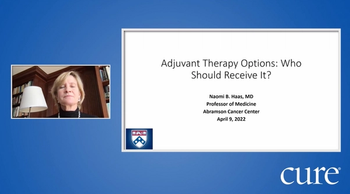
Watch Dr. Naomi Haas, from Abramson Cancer Center, discuss adjuvant therapy options, during the CURE Educated Patient Kidney Cancer Summit.

Watch Dr. Naomi Haas, from Abramson Cancer Center, discuss adjuvant therapy options, during the CURE Educated Patient Kidney Cancer Summit.
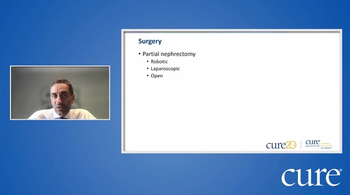
Watch Dr. Jose Karam, from The University of Texas MD Anderson Cancer Center, discuss surgical options, during the CURE Educated Patient Kidney Cancer Summit.
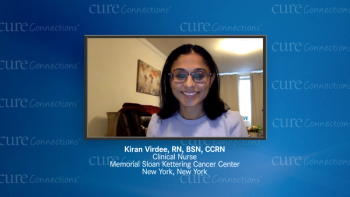
Clinical nurse Kiran Virdee explains why a multidisciplinary treatment approach to clear cell renal cell carcinoma is beneficial.
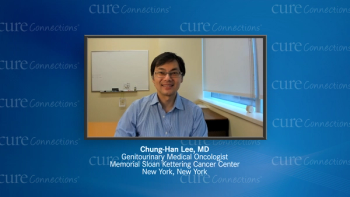
An oncologist describes the necessity of discussing options with a patient when picking a treatment approach for clear cell renal cell carcinoma.
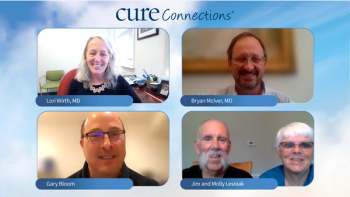
Expert and patient perspectives on receiving lenvatinib therapy for iodine-refractory differentiated thyroid cancer.
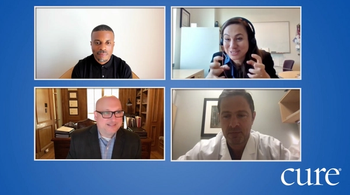
Watch Dr. Vitaly Margulis, Dr. Rana Mckay and Kwame Garrett-Price answer questions about kidney cancer diagnoses during the CURE Educated Patient Kidney Cancer Summit.

Health care specialists share insight on the work-up of patients with iodine-refractory differentiated thyroid cancer and how this may affect systemic therapy options.
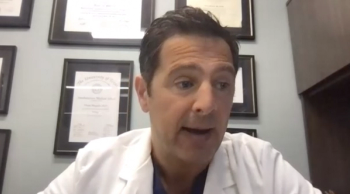
By understanding what a TNM staging score is, patients and clinicians can determine the best line of treatment for their kidney cancer, as well as what the survivorship care plan should be.
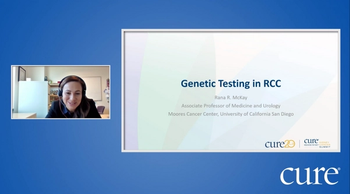
Watch Dr. Rana R. McKay, from the University of California San Diego, discuss genetic testing in renal cell carcinoma during the CURE Educated Patient Kidney Cancer Summit.

A review of clinical trial data on combination treatments for clear cell renal cell carcinoma.
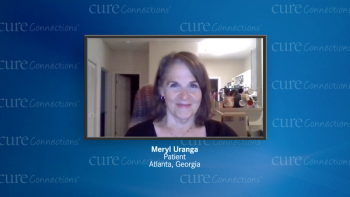
Patients with clear cell renal cell carcinoma speak to their experiences with systemic treatments.

Watch Dr. Vitaly Margulis, from UT Southwestern Medical Center, discuss staging, during the CURE Educated Patient Kidney Cancer Summit.

Discussion on when differentiated thyroid cancer is determined to be iodine-refractory, and how patients should be followed in this setting.

Expert perspectives on the process of surgery and radiation therapy used for less severe cases of differentiated thyroid cancer.
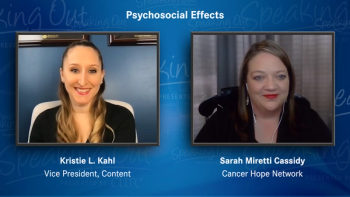
As part of its Speaking Out video series, CURE spoke with Sarah Miretti Cassidy, director of external affairs at Cancer Hope Network, about the importance of support following a lung cancer diagnosis.

As part of its Speaking Out video series, CURE spoke with Sarah Miretti Cassidy, director of external affairs at Cancer Hope Network, about the psychosocial effects of a lung cancer diagnosis.

As part of its Speaking Out video series, CURE spoke with Sarah Miretti Cassidy, director of external affairs at Cancer Hope Network, about support for caregivers of patients with lung cancer.

As part of its Speaking Out video series, CURE spoke with Sarah Miretti Cassidy, from Cancer Hope Network, about seeking support for patients who may be nearing end of life, as well as support for family and friends after a loved one has passed.
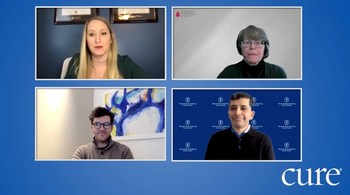
Watch Kristie L. Kahl, with Sham Mailankody, MBBS; Cesar Rodriguez, MD; and Lynn Steele, discuss new therapies on the horizon, during the CURE Educated Patient Multiple Myeloma Summit.
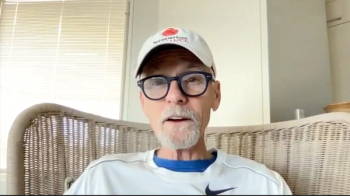
After surviving cancer and the many bad days that come with a diagnosis, voice actor Rob Paulsen noted that he had a newfound sense of empathy that helped him out of some of his darkest days.

An overview of first-line treatment options for metastatic clear cell renal cell carcinoma.
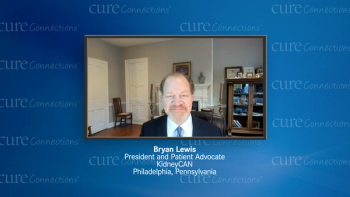
Bryan Lewis, president of KidneyCAN, explains how his organization supports the renal cell carcinoma community and where patients can find curated educational resources.
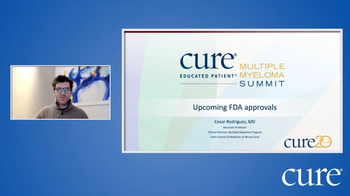
Watch Dr. Cesar Rodriguez, of the Multiple Myeloma Program at the Ichan School of Medicine at Mount Sinai, discuss upcoming FDA approvals in the space, during the CURE Educated Patient Multiple Myeloma Summit.

Jim Lesniak shares his experience of receiving a diagnosis of and being treated for differentiated thyroid cancer.

Considerations for the role of patient advocacy groups and patient-to-patient education in the differentiated thyroid cancer journey.
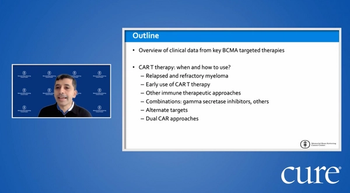
Watch Dr. Sham Mailankody, from Memorial Sloan Kettering Cancer Center, discuss CAR and BiTE therapy, during the CURE Educated Patient Multiple Myeloma Summit.
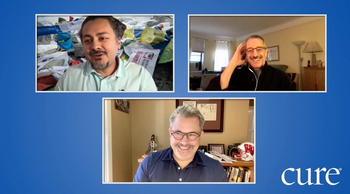
Watch Dr. Saad Z. Usmani, Dr. Ben Marcus and Stan Wagner discuss their participation in the Moving Mountains for Multiple Myeloma program, during the CURE Educated Patient Multiple Myeloma Summit.
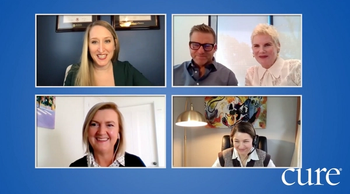
Watch Kristie L. Kahl, Donna and Jack McNutt, Dr. Noopur Raje, and Grace Allison, discuss treating myeloma long term, during the CURE Educated Patient Multiple Myeloma Summit.
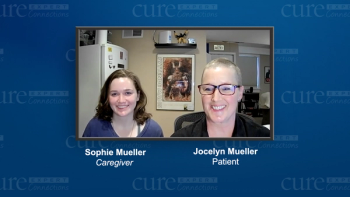
Sophie Mueller provides advice for patients and caregivers with breast cancer who may be in similar situations.
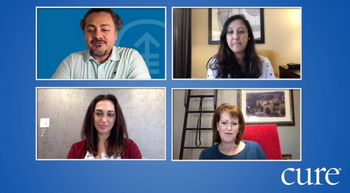
Watch Dr. Saad Z. Usmani, Dr. Krina K. Patel, Dr. Noa Biran, and Jenny Ahlstrom, answer audience Q&A during the CURE Educated Patient Multiple Myeloma Summit.